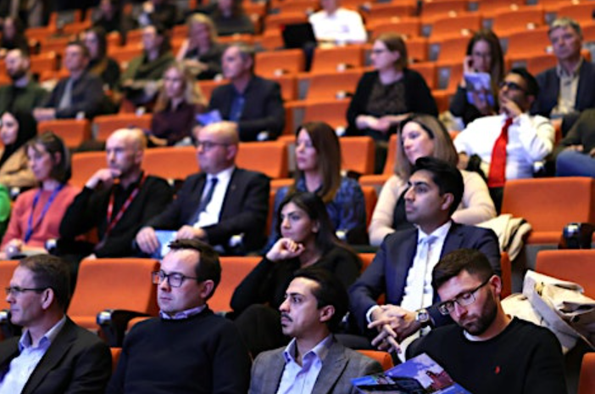
John Hamilton Lifelong Learning Lecture with Dr Shabna Begum
- Mark O'Brien
- Suitable for: Free
- Event website
- Book now
Add this event to my calendar
Click on "Create a calendar file" and your browser will download a .ics file for this event.
Microsoft Outlook: Download the file, double-click it to open it in Outlook, then click on "Save & Close" to save it to your calendar. If that doesn't work go into Outlook, click on the File tab, then on Open & Export, then Open Calendar. Select your .ics file then click on "Save & Close".
Google Calendar: download the file, then go into your calendar. On the left where it says "Other calendars" click on the arrow icon and then click on Import calendar. Click on Browse and select the .ics file, then click on Import.
Apple Calendar: The file may open automatically with an option to save it to your calendar. If not, download the file, then you can either drag it to Calendar or import the file by going to File >Import > Import and choosing the .ics file.
60 years since the first Race Relations Act: How much has changed?
In 1965 the Labour government passed the country's first 'race relations' law outlawing discrimination in public amenities. The law was created in the context of the 1958 racist riots, increasing anxieties around immigration, and the rise of the far right. Fast forward 60 years, we find ourselves confronting issues that feel not too dissimilar. The racist riots of summer 2024 mark the culmination of the increasing normalisation of anti-migrant, and anti-asylum rhetoric and the intensification of Islamophobia as well as the deepening of many structural forms of racism. This coincides with the cost-of-living crisis which may have disappeared from headlines but remains a punishing factor in the lives of so many. At this 60 year juncture, it is timely to revisit who 'we' imagined we were when we passed the first Race Relations Act and who we now imagine 'us' to be.
Dr Shabna Begum is CEO of the Runnymede Trust and was Director of Research there before her current post. Her leadership has been at the heart of all the Runnymede Trust’s recent projects, including research on education including art education, police in schools, and more broadly around the cost-of-living crisis, the experiences of women of colour in the workplace, and racism in migration debates, and most recently Islamaphobia.
John Hamilton was a significant figure in the political life of the City of Liverpool. He had been a teacher in Liverpool schools and remained deeply committed to education for working class children and adults throughout his life. He was a school governor, Chair of Liverpool City Council’s education committee and member of the University of Liverpool’s Council (1964-1988). Following his death in 2006, the University of Liverpool was bequeathed funding to be used to support and promote the education of working-class people.
